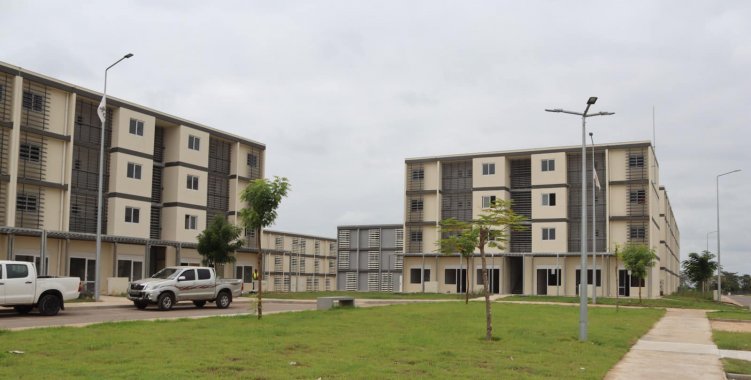Massada Culembala, who spoke this Wednesday at a press conference to announce the holding of the 1st Real Estate Law Congress, said that the register will measure the number of participants in this real estate sector, namely canvassers, appraisers, brokers and real estate managers and promoters.
According to the president of APIMA, currently the only association recognized by the State, this statistic is necessary to move towards training its actors.
"We cannot continue in illegality, we want to take people who are in the informal to the formal", he said, highlighting that the registered member will have a provisional pass for a period of four months, after which, after an assessment, he or she may or not become effective.
According to Massada Culembala, "attorneys, lawyers, military personnel, members of the Criminal Investigation Service, public administration agents, do real estate business", which is why it is necessary to organize the sector.
"We just want to organize, if you are a prosecutor, lawyer, police or public administration agent, they could be real estate agents, but we want them to be identified", he highlighted, adding that APIMA is working to change the mediation law.
"What we want is for the market to be organized, because in the real estate sector there is a lot of fraud," said the person in charge.
According to Massada Culembala, the real estate market experienced stagnation at the time of the Covid-19 pandemic, but the situation changed with notice no. 9/22 from the National Bank of Angola, regarding the special housing credit regime.
This warning, according to the person responsible, "did not work", but the announcement of the Action Plan of the National Development Plan for Grain Production (Planagrão) reactivated the market, with at this time a lot of demand for farms, but also for the area of construction.
Massada Culembala highlighted that a process is underway to amend the Land Law, in which the ministerial technical committees are involved.
In turn, Linda Liu, vice-president of H&S, a Chinese company with businesses in construction, real estate, industrial production, agriculture and fishing, highlighted the exchange rate issue and bureaucracy as challenges, situations that limit private foreign investment.
Linda Liu stressed that investment return plans are affected by the exchange rate imbalance, arguing that in addition to consumer protection laws, there should also be laws that protect investors.
"Without a guaranteed return, there are no investments in the real estate sector, because it is a great risk at the moment due to the very unstable exchange rate," she said.
According to Linda Liu, many investors in the real estate sector are waiting for the exchange rate to stabilize, reiterating that a law is needed that also protects the interests of promoters.
"We had many clients who requested housing credit. The BNA had a good initiative to help the development of the real estate market, but commercial banks request a lot of documents and the process is very slow, we, the promoters, help clients to prepare the documents, but the bank does not respond within the deadline, which forces you to repeat the same documents", she said.
The vice-president of H&S recommended that implementation rules be created, with limited deadlines, for example, to help speed up processes, as well as the legalization of land, construction and subdivision licenses.







